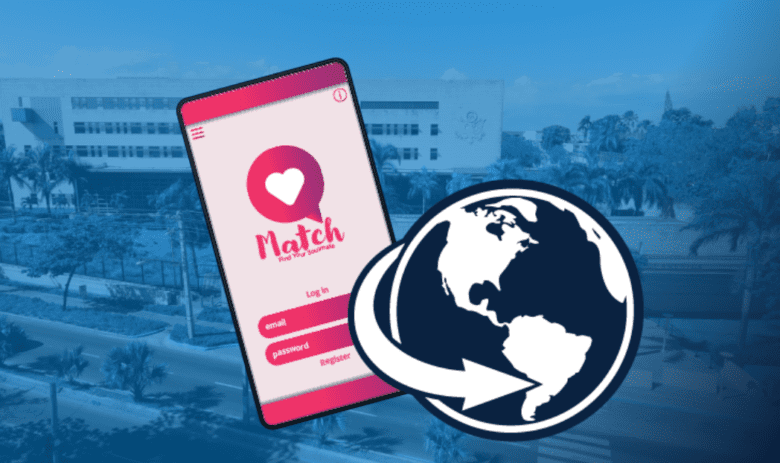11 Smartest Embassy-Backed Tips for U.S. Citizen Security While Using Dating Apps Abroad
Online dating has changed how people connect—especially for U.S. citizens who travel abroad. Whether you’re backpacking through Europe, working remotely in Southeast Asia, or simply exploring a new city, dating apps offer an exciting way to meet people. However, navigating these digital platforms overseas introduces unique risks. From scams to unsafe in-person meetings, there are real security concerns that every traveler must understand.
This guide goes beyond generic safety advice. It offers comprehensive, practical strategies to improve your awareness, help you stay safe, and share the right precautions as you explore the world of online dating during your travels.
1. Understand the Risks Before You Swipe
When U.S. citizens use dating apps in foreign countries, they often assume the experience will mirror what they’re used to at home. But the reality is very different.
Many scams target travelers specifically. Fraudsters may lure unsuspecting users with charming profiles and romantic gestures to manipulate them into giving up money or sensitive data. In extreme cases, victims have been robbed, blackmailed, or even assaulted.
Moreover, local laws and cultural norms about dating, public behavior, and gender roles may differ drastically from those in the U.S. An innocent interaction could be perceived as offensive, or worse, illegal.
Precaution starts with research and a healthy dose of skepticism. Assume that things can go wrong and plan accordingly.
2. Research Dating Norms and Laws in the Country You Visit
Every country has a different cultural approach to dating and relationships. What is acceptable in the U.S. might be taboo—or even criminal—elsewhere.
In some nations, online dating is banned or restricted. In other countries, same-sex relationships are criminalized. Misjudging these laws could result in deportation, arrest, or imprisonment. Contact your local embassy before you travel to ask about any relevant laws.
Some countries also have informal cultural expectations, like meeting in groups or chaperoned settings. Understanding these norms will not only improve your safety but also your experience.
3. Secure Your Devices and Personal Information
Your phone isn’t just a tool for dating apps—it’s your lifeline for navigation, communication, finances, and emergency contact.
Before you travel, secure your device with updated antivirus software and a VPN. Turn off location-sharing in apps unless actively using it to share plans with someone you trust.
Never upload sensitive personal information (e.g., full name, address, travel itinerary) to your online dating profile. Identity theft is a common issue in overseas scams.
Also, avoid using unsecured public Wi-Fi to access dating apps. Cybercriminals often exploit these networks to steal personal data.
4. Choose Dating Apps with Safety Features
Not all dating apps are designed with safety in mind. Some platforms are more vulnerable to scams, bots, and fake profiles.
When traveling, choose apps that provide built-in protections such as:
- Location control
- In-app video calling
- SOS alerts or panic buttons
- Verified photo identification
Popular apps like Bumble and Tinder allow you to disable location tracking until you’re ready to match. They also offer match reporting tools and safety guides for users abroad.
A safer app won’t guarantee a risk-free experience, but it significantly reduces the chances of encountering dangerous or malicious individuals.
5. Be Wary of Scams and “Too Good to Be True” Matches
A well-written profile, good photos, and charming conversation can be misleading. If someone you just matched with begins to ask for money, makes you feel guilty for asking questions, or wants to share their financial problems, these are common red flags of a scam.
Some scammers operate as part of organized crime rings. They may suggest a private meeting, then rob you or extort you using intimate photos or information.
Stay alert and trust your instincts. If something feels off, it probably is. When in doubt, report and block.
6. Plan Every In-Person Meeting Carefully
The most dangerous part of the online dating journey can be the in-person encounter. That’s why careful planning is essential.
Always share who you’re meeting, where, and when. Send a screenshot of your match’s profile, and share your location via a tracking app like Life360 or Find My. Let a friend know when you expect to return and check in afterward.
This simple precaution has helped travelers avoid becoming victims of abduction, robbery, or worse.
Choose a Safe, Well-Known Public Place
Always choose a public place for the first meeting—ideally one that’s well-lit, busy, and centrally located. Hotel lobbies, cafés, or chain restaurants are great choices.
Never agree to meet in a private residence or remote area, especially on the first date. Even if the person seems trustworthy, always prioritize safety over politeness.
7. Use a Separate Phone Number or Burner App
To protect your personal information, avoid giving out your primary number. Use a service like Google Voice, Hushed, or Burner to create a temporary number for dating purposes.
This adds a layer of security if your experience goes wrong or you need to cut off contact quickly.
8. Be Prepared to Contact the Local U.S. Embassy
If you face harassment, become a victim of a scam, or experience assault, reach out to the nearest U.S. embassy immediately.
The embassy can help:
- Provide legal advice
- Replace lost or stolen passports
- Contact your family or employer
- Offer lists of local lawyers and translators
Always save the embassy’s contact information in your phone before you travel.
9. Use the “Video Chat First” Rule
A video call is one of the best ways to verify that your match is who they say they are. Most dating apps offer this feature, and you should use it before agreeing to an in-person meeting.
Video calls can also help gauge chemistry and reduce surprises during the first date.
Scammers and catfishers often avoid live calls, so insisting on one is a good filter.
10. Watch for Red Flags That Signal Danger
Even on the safest apps, dangerous users slip through. Watch for these common signs:
- Avoids answering direct questions
- Pressures you for personal details
- Wants to meet too quickly
- Seems overly romantic or ideal
- Tries to isolate you
Pay attention to inconsistencies in their stories. If something doesn’t add up, don’t dismiss it—caution is your best ally.
11. Make a Travel and Dating Safety Kit
Preparation goes beyond mental awareness. Pack a basic safety kit with:
- A portable charger (dead phones are dangerous)
- A discreet personal alarm or whistle
- A printed emergency card with embassy contact details
- Pre-downloaded maps and local ride apps (like Uber or Bolt)
Knowing your surroundings and having a clear plan will make your experience significantly safer.
Real Experiences From Fellow Travelers
“I matched with someone in Colombia who offered to pick me up. I declined and met in a busy coffee shop instead. He never showed up—later, I found reports of him targeting solo travelers.” – Lisa, 27, New York
“I always use Google Voice when I travel. It helped me block a guy who started sending weird messages after our date.” – Aaron, 34, Arizona
These stories highlight how often things can go wrong, even when everything seems fine at first.
FAQs: Answers to Common Dating and Travel Safety Questions
Q: Is it safe to use dating apps while traveling abroad?
A: Yes, with proper precautions. Stick to well-reviewed apps, vet your matches, and prioritize public, safe meeting places.
Q: What should I do if I feel unsafe during a date?
A: Leave the public place immediately and call someone. If in real danger, don’t hesitate to call local emergency services or your embassy.
Q: How do I protect my personal information?
A: Avoid linking social accounts, use pseudonyms, and enable privacy settings on your app profiles.
Final Thoughts: Stay Open, Stay Safe, Stay Smart
Using online dating while abroad can enrich your travel experience in amazing ways. But as a U.S. citizen, it’s your responsibility to prioritize your safety.
By learning the risks, choosing safer dating apps, being careful about in-person meetings, and staying aware, you’re not just protecting yourself—you’re building smarter habits for life.
So go ahead—visit new cities, connect with locals, and make memories. Just always keep your security top of mind.



